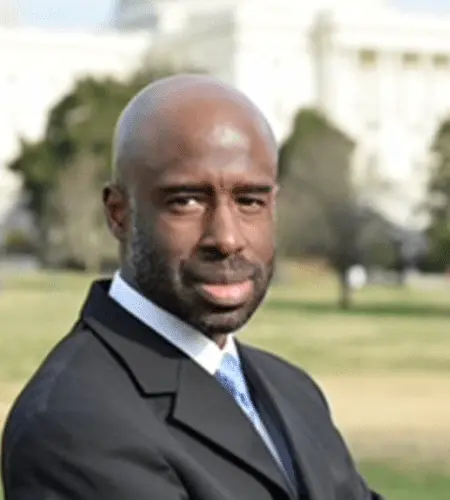Navigating Child Custody: Insights from the Best Divorce Attorney in New York
Are you facing the challenges of child custody battles resulting from divorce? Discover how The Law Offices Of SRIS, P.C. can guide you as you navigate this difficult journey. Ensuring the best possible future for your child is paramount to our team of experienced attorneys in the heart of New York.
Understanding Child Custody in New York:
In New York, child custody is determined based on the child’s best interests. The court considers the child’s physical, emotional, and psychological well-being, the parenting abilities of both parents, their capability to meet the child’s needs, and the bond they share with the child.
Child custody encompasses two primary categories: physical and legal arrangements.
The parent with whom the child spends most of their time holds physical custody rights.
The parent granted legal control is responsible for making decisions concerning the child’s upbringing, education, and medical care.
Under joint physical custody, the child may spend time with both parents, while the court might award sole physical custody to one parent. Likewise, the court could grant sole or joint legal custody, allowing both parents to participate in significant decisions affecting the child.
Additionally, the court might grant visitation rights to the parent without biological custody. Visitation pertains to the time the child spends with the non-custodial parent.
If you are facing a child custody issue in New York, seek guidance from a lawyer who can elucidate your rights and available options. An attorney can also represent you in court and advocate for you and your child.
In case of a child custody issue in New York, it’s advisable to consult the Best Divorce Attorney in New York to clarify your rights and the options at your disposal. A lawyer can also act on your behalf in court and advocate for both you and your child.
The Best Divorce Attorney in New York is familiar with the family court system and can champion your child’s interests.
When it comes to matters involving child custody, it is imperative to engage the services of the best divorce lawyer for the following reasons:
- Familiarity with Family Law: The finest divorce lawyer thoroughly understands New York’s family justice system and the factors courts consider when determining custody arrangements. They will adeptly guide you through the court procedure.
- Negotiation: An experienced attorney can negotiate with the opposing party to establish a mutually acceptable custody agreement. If required, they can effectively represent you in court.
- Child Custody Cases: The ideal divorce lawyer has experience handling child custody cases. They comprehend the process of gathering evidence, constructing a compelling argument, and presenting it in court.
- Effective Communication: A reputable lawyer knowledgeable in clear communication keeps you well-informed about your case’s status. They are also adept at addressing your inquiries and concerns.
The Role of the Best Divorce Attorney in New York:
A knowledgeable lawyer can secure the most favourable custody arrangement through the following methods:
- Evidentiary Compilation: The top divorce attorney in New York will amass evidence in support of your claim, including parenting assessments, academic transcripts, and health records.
- Articulating a Persuasive Argument: The attorney will craft a compelling argument by briefly presenting the evidence.
- Presentation in Court: The attorney will deliver a persuasive presentation in court.
- Negotiation with the Opposing Party: The lawyer will discuss a mutually agreeable custody arrangement with the opposing party.
- Safeguarding Your Rights: The lawyer will protect your rights throughout the legal proceedings. If you are embroiled in a child custody dispute, retaining the services of the foremost separation lawyer in New York is imperative.
Furthermore, the attorney will compile evidence substantiating their assertions, such as parenting evaluations, academic records, and medical documentation. In custody disputes, the role of witnesses is pivotal.
Tailoring the case strategy to cater to the unique needs of the child and the client is the hallmark of the best divorce lawyer. Consequently, each case receives a customised approach. When formulating a case strategy, the attorney considers factors such as the child’s age, level of maturity, and specific requirements. The individual circumstances of the parents encompass.
Child Custody Cases:
Child custody disputes do not usually require court trials. Often, parents can reach a consensus on their own or with the help of a mediator. However, a court trial might be necessary in other circumstances, such as when the parents cannot agree on a parenting schedule or when there is a history of abuse or neglect.
Some circumstances in child custody cases may necessitate a court trial:
- When the Parents Cannot Agree on Child Custody: A court trial may be necessary to resolve the issue if the parents cannot agree on the child’s home, the amount of time spent with each parent, or other essential aspects of the custody arrangement.
- When Abuse or Neglect Has a History: A court trial might be required to ensure the child’s protection if there has been a history of abuse or neglect in the home. The court will determine which parent is better equipped to provide the child with a secure and stable home.
- When One Parent Asks for Sole Custody: If one parent asks for sole possession of the child, the other parent might want to object. It can be essential to hold a court trial to decide which parent is more suitable for exclusive custody.
The divorce lawyer will thoroughly study the case file, speak with the client, and gather evidence to prepare for a judicial proceeding.
The purpose of an attorney in a child custody dispute is to represent the client’s interests. It entails favourably presenting the evidence for their client and conducting a cross-examination of the other side’s witnesses in a way that casts doubt on their reliability. The lawyer will also explain to the judge why their client is more suitable for child custody.
In a child custody dispute, the evidence given by the attorney is crucial. The attorney must carefully choose the evidence they offer the court, ensuring it is credible and relevant. Additionally, they must be clear and concise in conveying the information.
Another crucial component of a child custody dispute is cross-examination. The lawyer must carefully challenge the credibility of the other side’s witnesses.
It might entail criticising their motivations, asking challenging questions, or pointing out discrepancies in their testimony.
The lawyer’s final statement is their last opportunity to convince the court to decide in their client’s favour.
The lawyer will have to summarise the presented proof and argue why their client is the superior choice for custody of the child.
Crafting a Strong Custody Case:
A court trial can be a daunting experience, but with the help of the Best Divorce Attorney in New York, you can increase your chances of getting the best outcome for your child.
In offspring custody cases, the finest separation advocate will consider the offspring’s inclinations and viewpoints. The statute in most regions necessitates the court to factor in the offspring’s supreme concerns when arriving at a custody determination.
There are a few ways that the best divorce attorney can ensure. The court listens to the child’s voice:
- Interviewing the child: The attorney will interview the child to get their thoughts and feelings about the custody arrangement. Older children must express their preferences.
- Obtaining a child custody evaluation: A child custody evaluation is a report prepared by a mental health professional interviewing the child, the parents, and other relevant individuals. The assessment will inform the court about the child’s needs and wishes.
- Consulting with Professionals: The attorney may consult with Professionals, such as psychologists or social workers, to get their input on the child’s best interests.
The role of child custody evaluators is to provide the court with information about the child’s best interests.
This information may include the child’s emotional and psychological needs, their relationship with each parent, and their wishes about custody.
The attorney will balance the child’s wishes with legal requirements. It means that the attorney will consider the child’s preferences, but they will also need to ensure that the custody arrangement is in the child’s best interests, even if the child does not want it.
For example, the child may want to live with one parent, but the attorney may believe the other parent can better provide for the child’s needs. In this case, the attorney must advocate for the custody arrangement they think is in the child’s best interests, even if it is not what the child wants.
It is important to remember that the child’s voice is just one factor the court will consider when deciding custody.
People often make custody arrangements with the best intentions, but it is essential to remember that circumstances can change over time. For example, one parent may lose their job or relocate for work. The child’s needs may also change as they get older.
In these cases, it may be necessary to modify the custody arrangement. The best Divorce Attorney in New York can help parents navigate the process of changing a custody arrangement. They can also help parents to communicate effectively and resolve any disputes that may arise.
Custody Arrangement:
Here are some of the reasons why a custody arrangement may need to be modified:
- One parent’s circumstances change, including job loss, relocation, or health problems.
- The child’s needs change: This could include changing school, extracurricular activities, or health needs.
- The parents’ relationship changes could include a new relationship, marriage, or divorce.
- The parents cannot cooperate: This could lead to conflict and make it difficult to follow the existing arrangement.
If a custody arrangement needs to be modified, the first step is to talk to the other parent. If you agree to a modification, you can petition the court.
If you cannot agree, you must go back to court and ask the judge to modify the arrangement.
The attorney can also help you negotiate a modification both parties will accept.
In Summary, Navigating child custody disputes is a sensitive procedure that calls for the utmost care and legal knowledge, and we at The Law Offices Of SRIS, P.C. are aware of this.
We are prepared to protect your child’s interests while assisting you with the complexities of family law.
Contact us right away, and we’ll be there to support you as you make your way toward a fair child custody agreement.
Frequently Asked Questions (FAQs) about child custody:
- What is custody of a child?
Child custody is the legal structure that establishes who will be in charge of a child’s care, upbringing, and decision-making following a parent’s divorce or separation.
- What exactly is joint custody?
Joint custody often entails both parents sharing time with the child and responsibility for making critical choices regarding the child’s life. It can be shared physical custody, shared legal custody, or both.
- What exactly is sole custody?
With sole custody, one parent has most of the child’s decision-making power and physical control. There may still be scheduled time with the child or visiting rights for the other parent.
- How is custody of children decided?
One should consider the child’s best interests when deciding on custody arrangements. Age the parent’s ability to offer a secure environment. The court considers the relationship between the child and each parent and other pertinent criteria.
- Are custody agreements subject to change?
If there is a significant change in circumstances, such as a parent moving or If the child’s needs change, custody arrangements might also change. However, Amendment processes often require court approval.
- What is a parenting plan, exactly?
An official parenting plan covers the specifics of the child custody and visiting schedules. It addresses issues, including the time spent with each parent’s agenda, who makes the decisions, and how to settle arguments.
- What’s the distinction between visitation and physical custody?
Visitation, or parenting time, refers to the time the non-custodial parent spends with the child following the custody arrangement. In contrast, physical custody refers to where the child lives and spends most of their time.
- Are grandparents or other family members eligible for custody?
If it’s in the child’s best interests, grandparents or other relatives may occasionally file a petition for custody. This procedure, which varies by jurisdiction, calls for evidence that staying with the relative would improve the child’s welfare.
- What takes place if parents are unable to agree on custody?
If the parents cannot agree on the terms of custody, a court hearing may be required. The judge will then consider all relevant information and decide what is in the child’s best interests.









